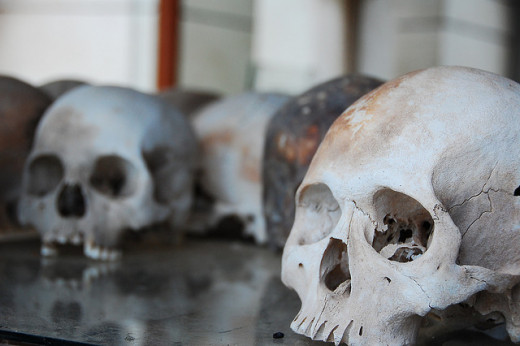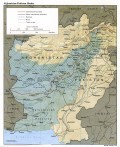News Stories You May Have Missed In 2014
Between the still-mysterious disappearance of Flight 370, the Ebola outbreak, and the rise of ISIS, 2014 was a pretty crazy year for us journalists. (I'm a journalism student, that counts right?) We saw a lot of stories come and go; a few of them were unfortunately quashed by "bigger news". Here are just a few of those you may have missed.
February 13 - Belgium Legalizes Euthanasia For All

In a rather large majority vote (88 to 44 with 12 abstained), Belgium became the world's first country to legalize euthanasia for terminally ill patients of any age. Doctor-assisted euthanasia has been a controversial subject for decades, and this new law was no exception. Doctors, clergy, and regular people on the street protested outside of the parliament house as the deliberation took place. Supporters of the law argued that the option was necessary for those terminal patients who would have to suffer until death.
Read More
May 5 - WHO Declares Polio An International Health Emergency

After years of progress against this devastating virus, healthcare experts were shocked to discover a resurgence of cases across 10 different countries. Of particular concern was the reappearance of polio in countries where it had previously been eradicated, such as Syria. The World Health Organization was also concerned over the spread of the disease over 3 different countries during what is typically the "off season" for polio.
Hardest hit was Pakistan, with a total of 293 cases for all of 2014. Afghanistan was a far second with 28 cases. For perspective, Pakistan reported only 93 cases in 2013, with Afghanistan at 19 cases. This rapid increase in the spread of polio led WHO specialists to encourage more aggressive vaccination programs and preventative measures.
August 7 - Tribunal Finds Top-Level Khmer Rouge Leaders Guilty Of Crimes Against Humanity

More than 30 years since the Khmer Rouge regime finally ended, a UN-backed Cambodian tribunal found two top-level leaders guilty of crimes against humanity. Between 1975 and 1979 over 2 million people died as a result of the regime's ruthless rule. Many were starved or worked to death, while others were executed for dubious crimes against the state. Charges of genocide against the Cambodian people have often been brought against the entire regime. (The list of charges against the two leaders took 90 minutes to read.)
Now in their 80s, Nuon Chea and Khieu Samphan were the first high-level officials to have been found guilty of crimes committed under the leadership of dictator Pol Pot, who died of heart failure in 1998. They were sentenced to life in prison. Prior to this verdict, only five people had been indicted for the Khmer Rouge's crimes, with one conviction (a former prison chief). Many of those who were to be tried in the past have passed away. Survivors saw this case, which took a total of 3 years of hearings, as a huge victory over those who tried to exterminate them.
Read More
October 19 - Comet Siding Spring's Close Call With Mars (And NASA's Satellites)

Scraping by Mars at 35 miles per second, Siding Spring came in less than 1/10th the distance that any comet has been near Earth. Scientists at NASA were understandably worried; comet dust flying at such speed could have caused untold damage to sensitive sensors aboard the satellites orbiting the red planet. All three orbiters were built in part to study the comet's effects on the Martian atmosphere, but that did not lessen any fear of potential damage. After moving the satellites into a protective position for the most hazardous part of the fly-by, NASA announced that all three were back up and running smoothly within hours. Better yet, the data gathered from Siding Spring revealed interesting disturbances to Mars' atmosphere and provided unique information about comet composition that had only been theorized before.





